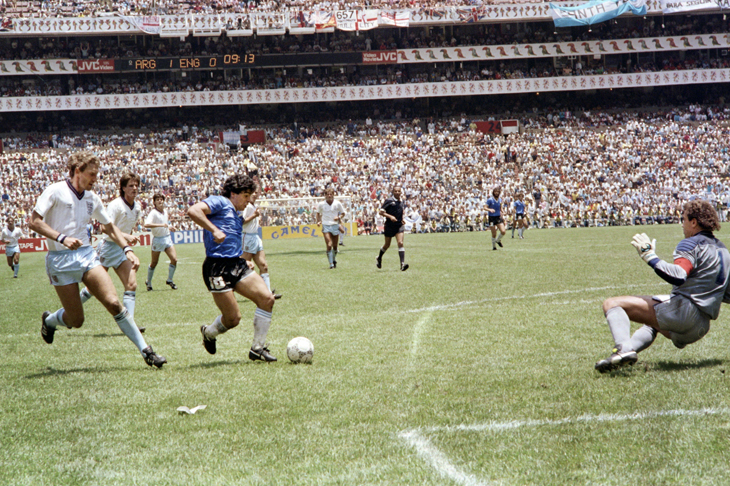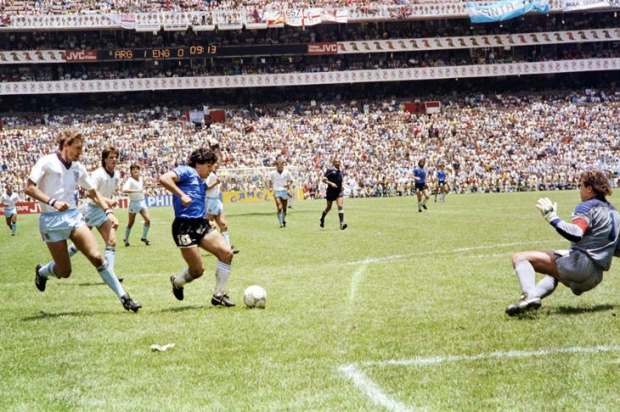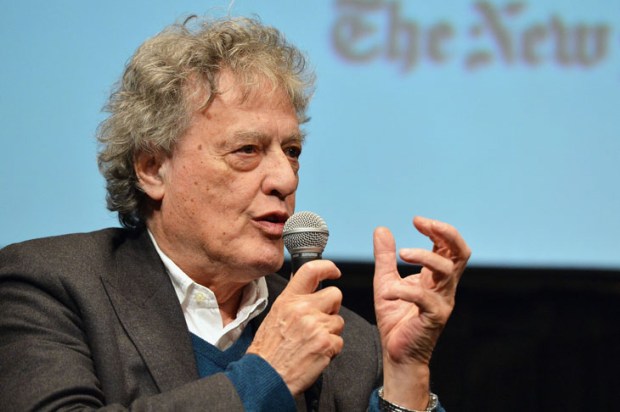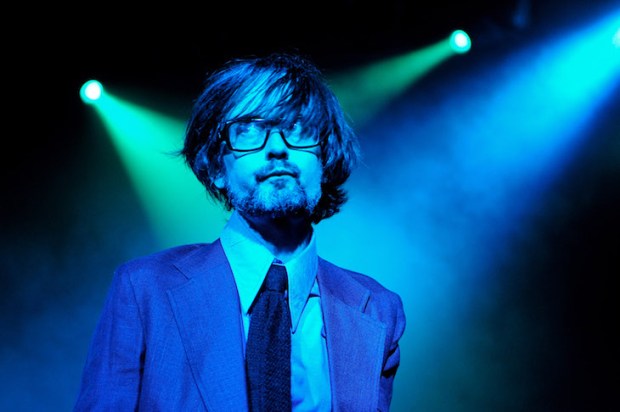The purest form of radio is probably sports commentating, creating pictures in the mind purely through language so that by some magic the listener believes that they were there, too, when Geoff Hurst scored that final goal, Shergar ran out the field at Epsom, Mo Farah sped ahead on Super Saturday. As Mike Costello said last Thursday on Radio Five Live’s celebration of 90 years since the first outside broadcast from a rugby match on 15 January 1927, ‘We’re all blind when we listen now, just as we were back in the 1930s.’
The technology has changed radically but radio still relies on the skill of an inspired individual to communicate the atmosphere, the tension, the thrill of seeing something extraordinary happening in a sports arena. Peter Bromley on Shergar at the Epsom Derby: ‘There’s only one horse in this race. You’ll need a telescope to see the rest.’ Or Bryon Butler commentating on England versus Argentina in the 1986 World Cup, ‘Maradona turns like a little eel…’ Somehow the commentator has to find the right words to describe as precisely and evocatively as he or she can what they’re seeing, and also feeling, so that the listener, too, can not just see in the mind what’s going on but also feel it. The recurring nightmare of most exponents of the art is to hear a chorus of listeners wailing, ‘You’ve lost me. You’ve lost me. You’re not telling me where the ball is.’
Back in the days of those early outside broadcasts, the commentator was joined by a colleague who sat with a sketch of the pitch in front of him, divided up into a grid of numbered squares. Listeners could sit at home with a similar grid. Every few minutes the commentator was interrupted by his colleague calling out the number of the square where the ball then was. Before long, though, it became clear that no such paraphernalia was necessary. Radio soon found its star players — Bromley and Butler, Cliff Morgan, Clare Balding, Christopher Martin-Jenkins. A warm, communicative voice, perfect articulation and a love of language is the only kit needed. Eleanor Oldroyd presented but gave no explanation for why commentary is still a craft dominated by men.
On Private Passions this week (Radio 3, Sundays), Michael Berkeley was talking to Philippe Sands, the human-rights lawyer and writer who last year won the Baillie Gifford prize for his non-fiction book about three men, all of whom came from Lviv in Ukraine, two of whom were involved as lawyers in the Nuremberg trials and the third, his grandfather, who was the only survivor of his entire extended family of 80 members. Sands, in between his selection of the music that has accompanied him through life, gave particularly good advice on how to respond to our current situation. ‘Those in government,’ he says, ‘do not remember what happened in Europe.’ But they also do not recognise that human nature has not changed. ‘Decent people are capable of doing terrible things.’
In spite of what he has witnessed in his work as a lawyer investigating war crimes in Rwanda, Yugoslavia and Chile, he is upbeat and instead looks for the individual stories that emerge from the black holes of the past. He discovered, for instance, that Hitler’s lawyer and one of the prosecuting lawyers at Nuremberg shared a love of Bach’s St Matthew Passion, each finding solace in its measured spirituality. Sands went on to create for concert performance a sequence of music, Songs of Good and Evil, out of all the pieces known to those whom he was researching. Most compelling, though, was his playing of a ‘live’ recording of Mahler’s ninth and last complete symphony by the Vienna Philharmonic made at a concert in Vienna in January 1938, not long before the Anschluss. Within eight weeks, said Sands, many members of the orchestra would have been fired because they happened to be Jewish. Audience and performers alike would have known, and mostly feared, what was coming. Someone can be heard coughing. Who were they? What happened to them?
Péricles Silveira’s winning play in the English language as a second language category of the World Service’s international writing competition for radio, The Day Dad Stole a Bus, also deals with memory, and how to make sure that we don’t forget. Nayara and her dad are travelling from Sao Paulo to his home village, which he has not seen since he was a child. When they discover that the roads up the mountain are closed, he simply commandeers the bus, determined to complete the journey. But it’s not that simple, as Nayara discovers. Where is the house he grew up in? Why can she not find her grandmother?
At first it’s all rather elusive. What time-scale are we in? What is that rumbling noise we can hear in the background? If the village disappeared because the dam collapsed, why is there still a guest-house there? But then Nayara discloses what at least to me came as a surprise and everything begins to make sense with a poignancy all the greater. It was directed by Marion Nancarrow and starred Stephen Tompkinson and Wunmi Mosaku.
Got something to add? Join the discussion and comment below.
Get 10 issues for just $10
Subscribe to The Spectator Australia today for the next 10 magazine issues, plus full online access, for just $10.
You might disagree with half of it, but you’ll enjoy reading all of it. Try your first month for free, then just $2 a week for the remainder of your first year.













Comments
Don't miss out
Join the conversation with other Spectator Australia readers. Subscribe to leave a comment.
SUBSCRIBEAlready a subscriber? Log in